The 16th international conference «The role of media in countering terrorism» has ended in Moscow. Experts from different countries talked about changing vector of journalism in anti-terrorist struggle, about intensification of cyber crimes and the need to strengthen fight against terrorism in the context of technological development.
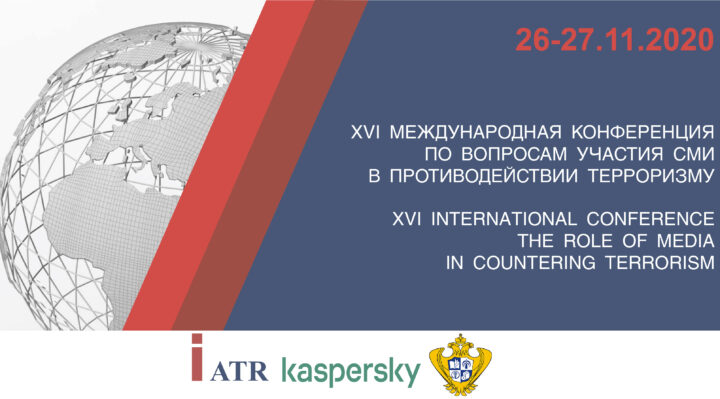
Well-known journalists, representatives of law enforcement agencies, heads of electronic media, scientists, businessmen, public figures from Russia, France, Italy, India, Israel, Spain, Morocco, Romania and other countries discussed, online and offline, how mass media changed methods of work over the past year in covering acts of terrorism and incidents. Participants talked about new threats to society, as terrorism is rapidly changing tactics. Modern technologies turn into a key factor, since they allow making preparation of a crime invisible, causing serious damage with small forces. The role of media, especially social networks, is increasing. One of the conference urgent topics was the COVID-19 pandemic and it’s obvious impact on social attitudes and changes in citizen’s media habits.
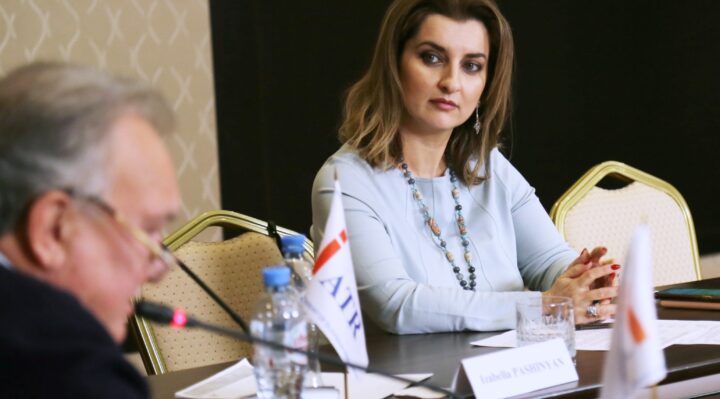
Participants discussed whether the audience demands reliable information against the example of journalist investigations. Fact-checking specialist Raya Koval, director of the Jerusalem Press Club (Israel), said that media negligence brings down trust: “Investigative journalism is not only relevant, but necessary. The main thing is to pass accurate information otherwise journalists will lose trust of the audience. At the beginning of coronavirus pandemic, a tweet about return of white swans to Venice was very popular. People loved it. It turned out that the bridge from the photo was not in Venice, but in a place nearby, where swans swam every year. Publishing fake news about swans, the journalists checked the audience reaction, and began to use the technique with other topics.
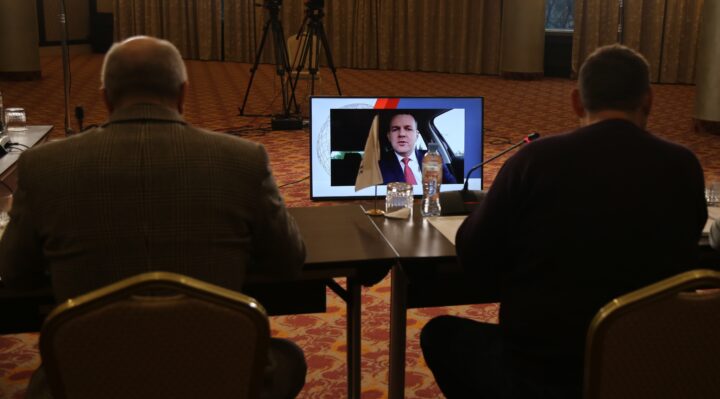
Elena Buldakova, co-founder and editor of the Planet360.info portal (Italy), believes that the young audience is not interested in investigations: “The flow of information is huge, the media themselves produce contradictory information, which undermines their credibility. At the same time, the demand for analytical information is minimal. There is a fear that investigative journalism may soon disappear, since young people have their own, clip-based, way of thinking. Young users are not prepared to read large texts, they are incapable of analysis. It is easier for them to hear someone’s opinion, preferably a peer.”
Journalists and editors need to be careful not to become a blind weapon in the hands of people interested in spreading information for their own benefit. Alexander Sladkov, special correspondent of the Russia 1 channel, spoke about this: “A modern reporter does everything: edits, writes, sets the light, acts as a camera man, a producer. He’s also a bit of a detective in search of truth. I think that soon there will be detective departments in editorial offices. Indeed, today various forces actively use reporters in their own interests, supplying information to media. We must be able to figure out who benefits from certain facts”.
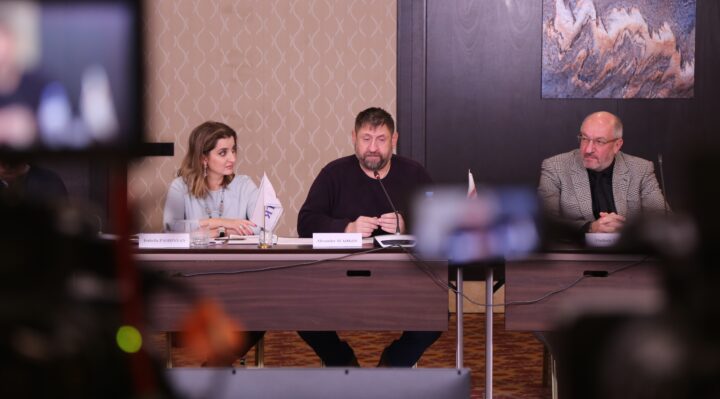
Chairman of the Union of Russian Journalists Vladimir Solovyov talked about reliability of journalist publications: “With the help of fake news, terrorists make people’s lives chaotic. If we do not stop the flow of fake news, we will cease to understand what is really happening.”
At a roundtable on cyberterrorism and information security, Andrey Yarnykh, head of strategic projects at Kaspersky Lab, spoke about how tech scammers took advantage of the Covid-19 pandemic: “Cybercriminals turned out to be better prepared for a massive shift of people to remote control – in the spring, attacks on ordinary users increased … The scammers actively used the brand of the World Health Organization: they published messages in the style of WHO, sent alleged reports with phishing links, giving access to personal information. In Russia, they used the name of Rospotrebnadzor and sent letters about due state compensation, asked to fill in personal data, including details for payment.”
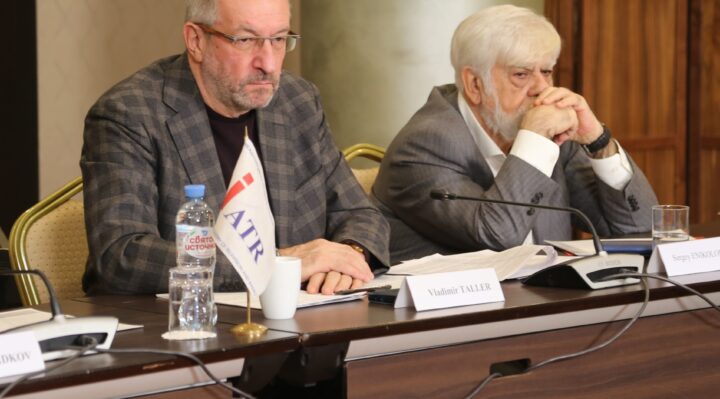
According to the military expert of «Fatherland Arsenal» magazine Alexei Leonkov, common people constitute the most vulnerable component in cyberspace. “People were told that traditional media are no longer a source of reliable information, it can be found only in the Internet. A lot of people believed this. Cyberspace is an intermediate link between diplomacy and war. With the help of cyberspace, without a single shot, without any military involvement, you can change the state system, arrange color revolutions, destroy states. Most countries are not immune from such interference.”
According to Yulia Ermilova, Deputy Head of the Information Broadcasting Directorate of the Public Television of Russia, the pandemic has noticeably increased the number of inaccurate publications, primarily in social networks. As a result, the government has tightened its supervision. “Some people published fakes for the sake of fame, other fakes appeared due to careless comments on social networks. A significant part of inaccurate information came through journalists. But their fault was not always obvious. It is not uncommon for trusted sources to first confirm facts to journalists, and after a scandal around a publication, retract their words, ” Yulia Ermilova said.
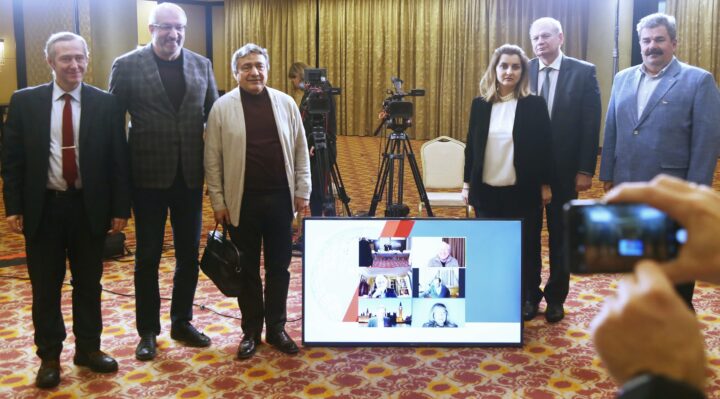
According to her, for the most part, people do not know how to distinguish between facts and toxic information. The journalists of the «OTRazhenie» program on Public Television of Russia asked viewers: “Can you tell the fake from the truth?” 91% of respondents answered in the affirmative, and when they were given seven news stories, some of which were fictitious, only 46% were able to distinguish real events from fakes.
“Information noise often affects society more than real journalism,” says the president of TVM Group, Vladimir Taller. – It is important to study perception of information by different groups of users, readers, viewers. Age, education, and confessional differences allow journalists to understand how to make content better and more understandable. Our investigations should clarify where the truth is. Words of journalists should produce positive effect without leading to destructive consequences.”
To make fewer people suffer from criminals on the Internet, it is necessary to change users’ way of thinking and prepare them for possible threats, says Sergey Grebennikov, Director of ROCIT: “Our key task is to teach users how to avoid problems, how to avoid fraudsters. Users are lonely online – it’s true. But there is another trend: users don’t think about information security until they face a problem. Until a person is deceived, he thinks that reports of deception in Internet are fiction. Oddly enough, the lowest level of digital security is not among the elderly, but among adolescents aged 14-17. It is necessary to introduce a digital literacy course into the school curriculum in order to educate young people and teach them not to fall for the tricks of cybercriminals.”
Konstantin Kosachev, head of the Federation Council Committee on International Affairs spoke about importance of supporting objective media outlets that fight terrorists in the information field. Army General, Vice President of BL Group, ex-head of the RF Security Council Nikolai Bordyuzha said that it was important for states to develop a common strategy in countering terrorism. Special attention was given to a speech of the Internet Ombudsman Dmitry Marinichev, who dwelt upon philosophy of society. In his opinion, modern world is built on trust, so it is necessary to form the culture of who we trust and why, be it banks, doctors or media.
The conference was also attended by Ashot Dzhazoyan, Secretary of the Union of Russian Journalists, Chairman of the Media Congress “Commonwealth of Journalists” (Russia); Leonid Mlechin, Chairman of the Board of the International Academy of Television and Radio, Head of the Directorate of Historical and Publicist Programs of the Public Television of Russia; Ilya Lazarev, Deputy Head of the Federal Agency for Press and Mass Communications, etc.
As a result of the conference, the participants adopted a draft final document, noting changing vector of journalism in anti-terrorist struggle, focused on intensified crimes in cyberspace and the need to further countering terrorism in context of high technologies. A separate point raised the question of special education and mandatory introduction of a digital security course at schools and in universities. Until December 15, the document will be finalized by the working group of the International Academy of Television and Radio (IATR), taking into account additions and corrections of the conference participants.
The event was organized by the International Academy of Television and Radio (IATR) supported by the Federal Agency for Press and Mass Communications.
